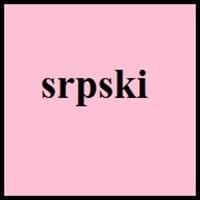Countries
Bosnia and Herzegovina, Kosovo, Serbia, Slovakia
Barbados, Belize, Botswana, Cameroon, Canada, Dominica, Fiji, Ghana, India, Ireland, Jamaica, Kenya, Malta, Mauritius, Micronesia, Nigeria, Pakistan, Philippines, Rwanda, Saint Kitts and Nevis, Samoa, Sierra Leone, Singapore, Somaliland, South Africa, South Sudan, Sudan, Tanzania, Trinidad and Tobago, Uganda, United Kingdom, Zambia, Zimbabwe
National Language
Bosnia, Croatia, Montenegro, Serbia
Anguilla, Antigua and Barbuda, Bahamas, Barbados, Belize, Bermuda, Cayman Islands, Gibraltar, Grenada, Guam, Guyana, Jersey, Montserrat, Nauru, Singapore, Trinidad and Tobago, United Kingdom, United States of America
Second Language
Not spoken in any of the countries
India, Nigeria, Pakistan, Singapore
Speaking Continents
Europe
Africa, Asia, Australia, Europe, North America, Oceania, South America
Minority Language
Croatia, Czech Republic, Hungary, Macedonia, Montenegro, Romania, Slovakia
South Africa
Regulated By
Board for Standardization of the Serbian Language
Not Available
Interesting Facts
- Serbian language was derived from the Old Church Salvic, as the language was commonly spoken by most of Slavic people in the 9th Century.
- Serbian language is based on Stokavian dialect.
- Most of the English words begin with the letter S than any other letter.
- English is third most commonly spoken language in the world.
Similar To
Bosnian and Croatian Languages
Not Available
Derived From
Not Available
Latin
Alphabets in
Serbian-Alphabets.jpg#200
English-Alphabets.jpg#200
Scripts
Cyrillic, Latin
Latin
Writing Direction
Left-To-Right, Horizontal
Left-To-Right, Horizontal
Hello
Здраво (Zdravo)
Hello
Thank You
Хвала лепо (Hvala lepo)
Thank you
How Are You?
Како си? (Kako si?)
How are you?
Good Night
Лаку ноћ (Laku noć)
Good Night
Good Evening
Добро вече (Dobro veče)
Good Evening
Good Afternoon
Добар дан (Dobar dan)
Good Afternoon
Good Morning
Добро јутро (Dobro jutro)
Good Morning
Please
Молим (Molim)
Please
Sorry
Жао ми је (Žao mi je)
Sorry
Bye
Довиђења (Doviđenja)
Bye
I Love You
Волим те (Volim te)
I love you
Excuse Me
Извините (Izvinite)
Excuse Me
Dialect 1
Prizren-Timok
American English
Where They Speak
Southeastern Serbia
United States of America
How Many People Speak
Not Available
Dialect 2
Smederevo–Vršac
Hiberno-English
Where They Speak
Serbia
Republic of Ireland, United Kingdom
How Many People Speak
Not Available
Dialect 3
Torlakian
Welsh English
Where They Speak
Bulgaria, France, Kosovo, Macedonia, Romania, Serbia
United Kingdom
Speaking Population
Not Available
Second Language Speakers
Not Available
Native Name
српски (srpski) српски језик (srpski jezik)
English
Alternative Names
Montenegrin
Not Available
French Name
serbe
anglais
German Name
Serbisch
Englisch
Pronunciation
[sr̩̂pskiː]
/ˈɪŋɡlɪʃ/
Ethnicity
Serbs
Not Available
Origin
11th Century
5th Century AD
Language Family
Indo-European Family
Indo-European Family
Subgroup
Not Available
Not Available
Branch
Not Available
Not Available
Early Forms
No early forms
Old English, Middle English, Early Modern English and English
Standard Forms
Standard Serbian
Standard English
Signed Forms
Not Available
Signed English
Scope
Individual
Individual
ISO 639 6
Not Available
engs
Glottocode
serb1264
stan1293
Linguasphere
53-AAA-g
52-ABA
Language Type
Living
Living
Language Linguistic Typology
Subject-Verb-Object
Subject-Verb-Object
Language Morphological Typology
Not Available
Analytic, Fusional, Isolating, Synthetic
Serbian and English Greetings
People around the world use different languages to interact with each other. Even if we cannot communicate fluently in any language, it will always be beneficial to know about some of the common greetings or phrases from that language. This is where Serbian and English greetings helps you to understand basic phrases in Serbian and English language. Serbian word for "Hello" is Здраво (Zdravo) or English word for "Thank You" is Thank you. Find more of such common Serbian Greetings and English Greetings. These greetings will help you to be more confident when conversing with natives that speak these languages.
Serbian vs English Difficulty
The Serbian vs English difficulty level basically depends on the number of Serbian Alphabets and English Alphabets. Also the number of vowels and consonants in the language plays an important role in deciding the difficulty level of that language. The important points to be considered when we compare Serbian and English are the origin, speaking countries, language family, different greetings, speaking population of these languages. Want to know in Serbian and English, which language is harder to learn? Time required to learn Serbian is 44 weeks while to learn English time required is 6 weeks.





